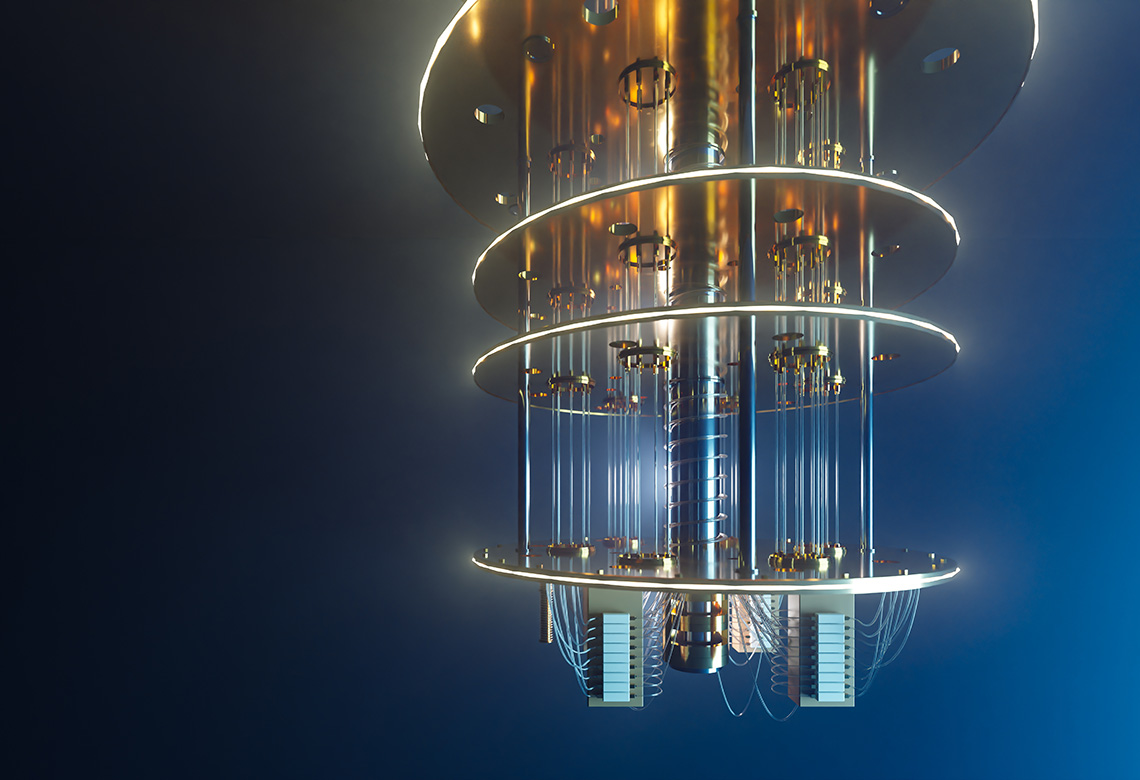A Japanese research consortium has achieved a milestone in the quest for development of the extremely powerful computer of the future, the quantum computer. The consortium has developed a 64-qubit computer which is already operational. Moreover, the technology involves a superconducting quantum bit design, which uses a 3D mounting layout with scalability that can support expansion to the 1,000-qubit level.
The consortium consists of RIKEN (Japan’s largest research institute), the Center for Quantum Information and Quantum Biology at Osaka University, the National Institute of Advanced Industrial Science and Technology (AIST), the National Institute of Information and Communications Technology (NICT), Amazon Web Services, e-trees.Japan, Fujitsu Limited, NTT, QuEL, QunaSys, and Systems Engineering Consultants.
The research was supported by Japanese Ministry of Education, Culture, Sports, Science and Technology.
Mind-blowingly powerful computers
In present computing, the basic unit of transferable information, known as the bit, is tied to the charge of a single electron. It can have two values only, one or zero – either there is an electron or there is none. The corresponding quantum computing unit – known as the qubit – will be able to assume more than two values.
One corner stone of quantum mechanics is for the elementary particles to not just have a charge but also a spin. Another key term is entanglement. Here, two or more particles interact in such a way that the quantum state of a single particle cannot be described independently of the state of the other(s).
The amount of information contained per qubit will increase exponentially with the number of quantum properties one is able to control, resulting in computers that are mind-blowingly more powerful than conventional computers.
Already available as a cloud service
The newly developed superconducting quantum computer uses a 64-qubit chip provided by RIKEN, which leverages the same design as the chip in RIKEN’s first superconducting quantum computer, which was unveiled to users in Japan as a cloud service for non-commercial use in March 2023.
The system uses a Josephson junction (a tunnel junction element) to realize quantum bits on an electronic circuit using a superconducting material. Because of the small scale of the energy difference of the 0 or 1 qubit state, it is necessary to cool the qubits to extremely low temperatures (to about -273 degrees C) in a dilution refrigerator.
Moving forward, the research group will operate the new computer while improving its software and other systems for usage including the processing of heavy workloads on the cloud. The research team anticipates that the computer will drive further progress in the fields of machine learning and the development of practical quantum algorithms, enable the exploration of new use cases in material development and drug discovery, and contribute to the solution of optimization problems to mitigate environmental impact.
The text is inspired by the articles “Research group launches Japan’s third quantum computer at Osaka University” and “Japanese joint research group win Prime Minister’s Award with ultra high-performance computing platform using jointly developed 64-qubit quantum computer” at the NICT website.
Image: Quantum computer system concept







